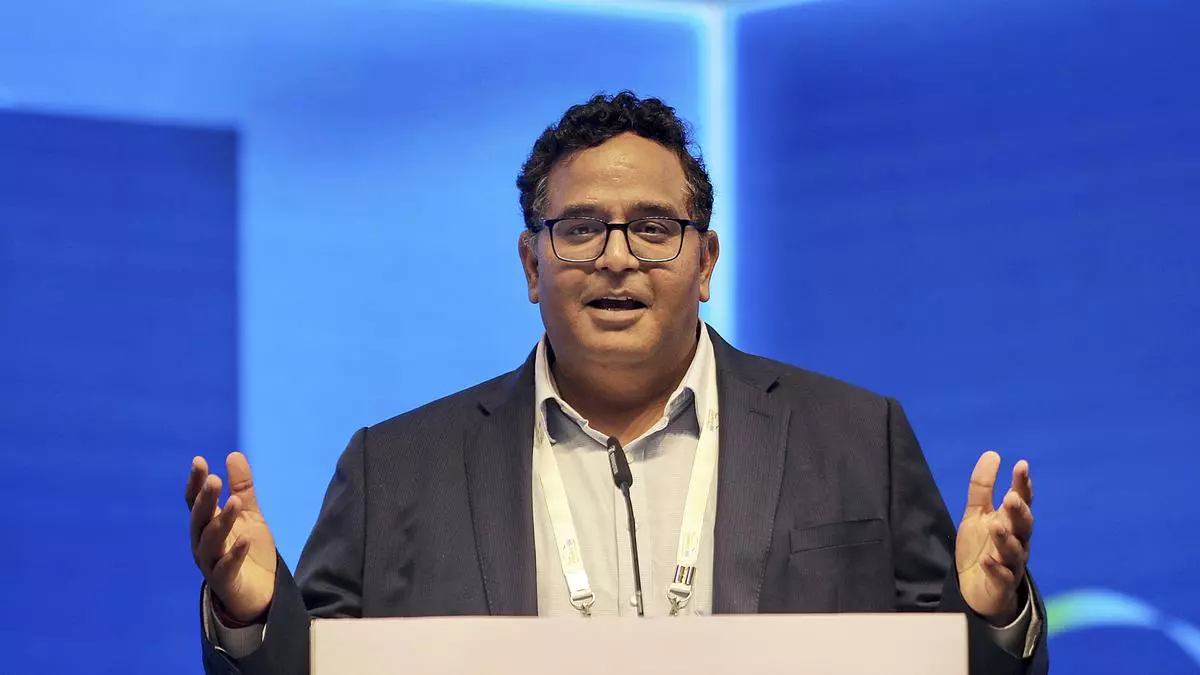Paytm: Shift focus to PAT profitability, prioritizing core payments business
One97 Communications Ltd (OCL), which owns the brand Paytm, on Thursday, said that it was changing tack to commit itself to focus on achieving Profit After Tax (PAT) profitability and moving away from its earlier focus of EBITDA before ESOP as a benchmark.
“My board members advised me to shift the focus from EBITDA before ESOP as a benchmark to PAT (Profit After Tax). We recognise that EBITDA before ESOP, due to its large ESOP charge, offers only a partial picture of our financial health. Our commitment is now to prioritise PAT, reflecting our drive towards true profitability,” Vijay Shekhar Sharma, Founder & CEO said at the 24th Annual General Meeting (AGM).
Sharma said that the company will prioritise its core payments business and cross-sell financial services as it aims to achieve profitability in the near future.
- Also read: Paytm reloads for a resilient comeback
“With commitment to the core payments business, we aim to deliver PAT profitability soon,” he said.
It may be recalled that Paytm, in the first quarter ending June 30, 2024, reported a consolidated net loss of ₹839 crore, marking a 135 per cent increase from the net loss of ₹357 crore recorded in the same quarter last fiscal.
The latest first-quarter loss was also greater than the consolidated net loss of ₹551 crore reported in the January-March 2024 quarter.
Payment Aggregator Licence
Sharma also mentioned that Paytm would soon approach the Reserve Bank of India (RBI) and apply for a payment aggregator (PA) licence, now that the Centre has given the requisite approval for foreign direct investment (FDI) in Paytm Payment Services Ltd (PPSL).
The Finance Ministry granted its approval last month for OCL’s “downstream investment” into PPSL, which is the payment services business of the fintech major.
The RBI introduced the PA framework in March 2020. According to this framework, payment gateways must obtain an aggregator licence to acquire merchants and provide digital payment acceptance solutions.
Currently, serving approximately 40 million merchants, Paytm aims to reach 100 million across the country, including diverse merchants such as rickshaw drivers and plumbers. The company’s strategic initiatives focus on leveraging advanced technology to offer financial services like loans, insurance, and mutual funds, thus broadening its market reach and promoting financial inclusion.
The company’s strategy includes cross-selling loans, insurance, and mutual funds through partnerships with major banks and NBFCs, further strengthening its position in the market.
Compliance First Approach
Sharma said that over the past six months, the company has learnt many lessons, allowing it to carefully review the business processes, compliance standards, and internal operations. “I can now confidently assure you that we have adopted a compliance-first approach, ensuring our business adheres to every regulation fully, both in letter and spirit,” Sharma said.
During the AGM, President and Group CFO Madhur Deora told shareholders that the company remains committed to bringing half a billion Indians into the mainstream economy through technology-led services. He further highlighted the company’s strong financial position, noting a robust balance sheet with a cash balance of ₹8,500 crore.
